
North Africa is a region encompassing the northern portion of the African continent. There is no singularly accepted scope for the region, and it is sometimes defined as stretching from the Atlantic shores of the Western Sahara in the west, to Egypt and Sudan's Red Sea coast in the east.
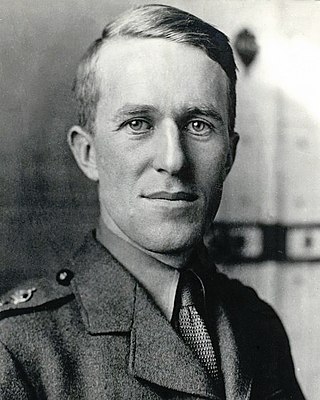
Thomas Edward Lawrence was a British Army officer, archaeologist, diplomat and writer known for his role during the Arab Revolt and Sinai and Palestine campaign against the Ottoman Empire in the First World War. The breadth and variety of his activities and associations, and Lawrence's ability to describe them vividly in writing, earned him international fame as Lawrence of Arabia, a title used for the 1962 film based on his wartime activities.

Seven Pillars of Wisdom is the autobiographical account of the experiences of British Army Colonel T. E. Lawrence while serving as a military advisor to Bedouin forces during the Arab Revolt against the Ottoman Empire of 1916 to 1918.
The music of the United Arab Emirates stems from the Eastern Arabia music traditions. Distinctive dance songs from the area's fishermen are also well-known. Liwa is a type of music and dance performed mainly in communities which contain descendants of Bantu peoples from the African Great Lakes region, and hybrid Afro-Arab rhythms such as the Sha'abi al-Emirati and Bandari remain the standard in both traditional and popular music in this historically cosmopolitan country.

The Beja people are a Cushitic ethnic group native to the Eastern Desert, inhabiting a coastal area from southeastern Egypt through eastern Sudan and into northwestern Eritrea. They are descended from peoples who have inhabited the area since 4000 BC or earlier, although they were Arabized by Arabs who settled in the region. They are nomadic and live primarily in the Eastern Desert. The Beja number around 1,900,000 to 2,759,000.
Hausa–Fulani are people of mixed Hausa and Fulani origin. They are primarily found in the Northern region of Nigeria, most of whom speak a variant of Hausa or Fula or both as their first language. The term Hausa-Fulani is also used mostly as a joint term to refer to both the monoethnic Hausa and Fulani ethnic populations in Northern Nigeria.
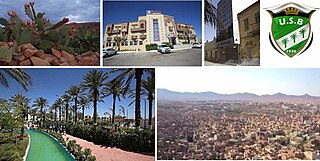
Biskra is the capital city of Biskra Province, Algeria. In 2007, its population was recorded as 307,987. Biskra is located in northeastern Algeria, about 248 miles (399 km) from Algiers, 71 miles (114 km) southwest of Batna and 137 miles (220 km) north of Touggourt. It is nicknamed "The Queen of the Zibans", "The Door of the Desert" or "The Saharan Nice" because of its location at the beginning of the Sahara Desert. Due to its geographical location, its climate and natural resources, particularly farming, Biskra has always been a crossroad between the cities in the north and south. It has seen the passage of several civilizations, from the Romans and the Arabs to the French.
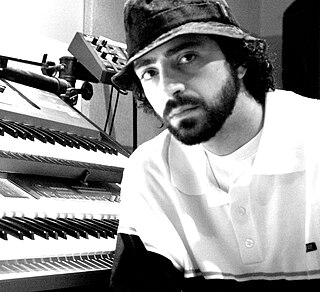
Farid Karam Nassar, better known by his stage name Fredwreck, is a Grammy Award-winning American hip hop recording artist, DJ and record producer. He got his big break when he became a producer for Dr. Dre's newly founded record label Aftermath Entertainment, and then went on to work with Snoop Dogg's record label Dogghouse Records and became a known producer on Tha Dogg Pound-affiliated material. During this time he also was a producer for Snoop Doggs track: Riders on the storm Ft The Doors on EA's Need for Speed Underground 2. He has produced tracks from Kurupt's Tha Streetz Iz a Mutha and most of his next release, Space Boogie: Smoke Oddessey; both released during the period the rapper had left Death Row Records. He has also produced for other hip-hop and pop artists such as Eminem, Britney Spears, Ice Cube, Westside Connection, Lil' Kim, Hilary Duff, Xzibit, The Game, Nate Dogg, Everlast, Cypress Hill, 50 Cent, Mobb Deep, as well as non-US acts such as Dizzie Rascal, Tamer Hosny, Qusai Kheder and Karl Wolf.

Cat Soup is a 2001 Japanese animated experimental short film directed by Tatsuo Satō, based on the manga created by Nekojiru. The surreal film follows Nyata, an anthropomorphic kitten, on his travel to the land of the dead and back in an effort to save his sister's soul. Cat Soup was released direct-to-DVD in Japan on 21 February 2001. Central Park Media licensed the film in North America under its Software Sculptors label and was released on DVD on September 9, 2003.
Arabic hip-hop is a segment of hip hop music performed in the Arabic-speaking world. Due to variety of dialects and local genres which exist in the localities, Arabic hip-hop music may appear very diverse depending on the country of the song. Like most artists of the genre, the hip-hop artists from the Arabic-speaking world are highly influenced by American hip-hop.
"Embraceable You" is a jazz standard song with music by George Gershwin and lyrics by Ira Gershwin. The song was written in 1928 for an unpublished operetta named East Is West. It was published in 1930 and included in that year's Broadway musical Girl Crazy, performed by Ginger Rogers in a song and dance routine choreographed by Fred Astaire.
"Jackals and Arabs" is a short story by Franz Kafka, written and published in 1917. The story was first published by Martin Buber in the German monthly Der Jude. It appeared again in the collection Ein Landarzt in 1919.
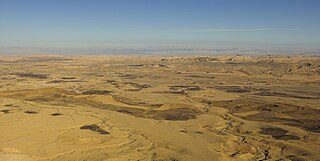
A desert is a landscape where little precipitation occurs and, consequently, living conditions create unique biomes and ecosystems. The lack of vegetation exposes the unprotected surface of the ground to denudation. About one-third of the land surface of the Earth is arid or semi-arid. This includes much of the polar regions, where little precipitation occurs, and which are sometimes called polar deserts or "cold deserts". Deserts can be classified by the amount of precipitation that falls, by the temperature that prevails, by the causes of desertification or by their geographical location.
Rabbah bar bar Hana was a Jewish Talmudist who lived in Babylonia, known as an Amora of the second generation.
The Encyclopedia of Pleasure or Jawāmiʿ al-Ladhdhah is the earliest existent Arabic erotic work, written in the 10th century by the medieval Arab writer Ali ibn Nasr al-Katib.
Afro-soul is a music genre that has African characteristics of soul music. It has emotional vocals, especially of the lead singer.
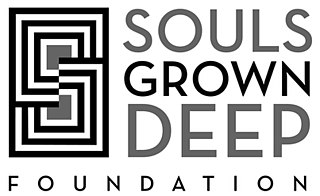
Souls Grown Deep Foundation is a non-profit organization dedicated to documenting, preserving, and promoting the work of leading contemporary African American artists from the Southeastern United States. Its mission is to include their contributions in the canon of American art history through acquisitions from its collection by major museums, as well as through exhibitions, programs, and publications. The foundation derives its name from a 1921 poem by Langston Hughes (1902–1967) titled "The Negro Speaks of Rivers," the last line of which is "My soul has grown deep like the rivers.
The following lists events that happened during 2015 in the United Arab Emirates.
Syrians in the United Arab Emirates include migrants from Syria to the United Arab Emirates, as well as their descendants. The number of Syrians in the United Arab Emirates was estimated to be around 242,000 in 2015.
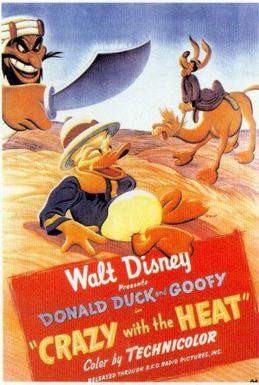
Crazy with the Heat is a 1947 Walt Disney Animation Studios cartoon featuring Donald Duck and Goofy. This was the last Donald & Goofy short film produced.









